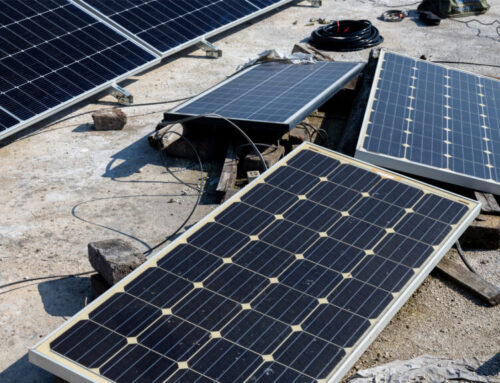Poland scraps 105-MW electrolyzer project after funding collapse
September 28, 2025
Poland’s energy giant, Polenergia, has announced that it will be scrapping the planned 105-MW H2Silesia green H2 project. Europe has taken hydrogen beyond what was previously thought possible, thanks to a substantial investment from the European Union. Polenergia is Poland’s largest private energy company and, as such, plays an integral role in the adoption of hydrogen in Europe. However, following a worrying move by the national development bank to withdraw crucial funds, the site will close its doors.
The Polish government pulled the grant for the H2Silesia green H2 project
For any major energy project to become a success, investment and support from private entities as well as government institutions are a necessity. Poland’s national development bank, BGK, announced it was pulling the substantial government grant that the H2Silesia green H2 project relied on to reach full operational status. It appears that the Polish government does not see the financial potential that hydrogen presents, instead focusing on other renewable energy sectors to meet its power demands.
The project was initially selected by the European Union as an “Important Project of Common European Interest”, and is the only one from Poland in the Hy2infra tranche. Polenergia stated that the funding was withdrawn by the bank following the company’s attempt to change the project based on “current market conditions and the ongoing process of reviewing strategic options in the area of hydrogen strategy.”
Despite the apparent change, Polenergia offered no further explanation. This has raised concerns for everyday Polish people. The plant was originally designed to be a large-scale renewable hydrogen facility, and had even been approved under the EU’s IPCEI Hy2Infra scheme with a public aid ceiling of €142.77m ($155.2m).
Polenergia has stated that the move aligns with its new strategy to wind down hydrogen activities
The company has stated it prefers to focus on alternatives in the renewable energy sector instead of the hydrogen power industry. What we must remember is that this is not the first project to be canceled by Polenergia. In April of this year, it canceled the H2HUB Nowa Sarzyna pilot project. So it comes as no surprise that they have opted to cancel the other significant project in the hydrogen sector.
A board member of Polenergia laid out the company’s stance towards the hydrogen sector while remaining suspiciously neutral on the project’s fate.
“We received information from BGK regarding our proposed changes to adapt the project to current market conditions, primarily regarding schedule changes. We are currently analyzing the project’s future in light of the information received,” – Polenergia board member Łukasz Buczyński
The decision to withdraw funding by BGK has not put a damper on other European nations’ plans for the hydrogen sector. Germany has greenlit a new project that has billion-dollar potential. Hydrogen remains the most promising energy source for the world in its pursuit of decarbonization. The project was expected to produce up to 500 tonnes of green hydrogen annually, which would have been vital to the carbon-neutral goals in Europe.
Polenergia’s withdrawal from hydrogen underscores the sector’s challenges
Chief among those challenges are high capital costs, uncertain demand, and financing barriers. Europe has an intense population density, thanks to the geographical limitations of the continent. Energy demand is on the rise; regardless of where you live, power demand is exceedingly high. To meet those new energy demands from several nations, the United States and Spain have plans to build a massive pipeline that would connect the two continents and deliver green hydrogen to millions. Poland will need to develop alternatives to find the energy required to propel the nation forward. We certainly hope progress is made in that regard.
Author Profile
Search
RECENT PRESS RELEASES
Related Post



